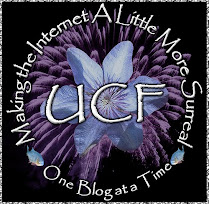In some ways, it was worse than I anticipated. I don't recommend learning statistics in an on-line forum, for example - the lack of interpersonal contact made this subject extremely difficult for me, in spite of my extensive experience as an on-line student. As a result, I ended up hiring a tutor who came to the Big Yellow House a couple times in order to straighten me out on a few things. It was worth the extra money, I believe, because he helped me solidify the concepts I'll need moving forward.
In other ways, it wasn't as bad as I'd convinced myself it would be. I am, in fact, fully capable of learning concepts associated with MATH, and even performing math (or statistics) related tasks in a manner that would earn me an "A." Go, me.
I won't be selling this particular book back to the book store, I don't think. Eventually I'm going to have to take Quantitative Reasoning, and I suspect I'll need to use it as a reference. The book also came with a Megastat plug-in for Excel, which I suspect will also come in handy for the Quantitative Reasoning course, so I may just eat the full cost and move on.
Next quarter's exciting offering is a course called Science, Technology and Markets. Here's the course description from the catalog:
Scientists within the various disciplines of the sciences - biology, chemistry, physics - pursue knowledge according to the interests, problems, and structures of previous knowledge within their field. They communicate with other scientists internationally, and their findings are reviewed and retested by peers. The discoveries they produce are often taken up and applied to various practical problems and opportunities in daily life. The focus of this course is on understanding how scientific discoveries are used as the basis for the development of technologies useful in manufacturing processes, healthcare, transportation, national defense, energy, and consumer products. Case studies will be used to understand how some technologies become successful in the marketplace while others, thought to have promise, do not become widely used. The case studies on technological applications of scientific discoveries also explore the processes involved in moving from science to technology to the market: financial and organizational structures used, potential conflicts over rights of ownership, and ethical issues that surface.I'm hoping that the discussion in the course will be thought provoking and the case studies worthwhile and germane. So much depends on the professor, though, that we'll just have to wait and see.
And in the meantime, did I MENTION THAT WAS DONE WITH MY STATISTICS CLASS?
::runs away, laughing maniacally::






12 comments:
Congrats! Well done and put behind you.
What's that I hear? The Halleluiah chorus swelling in the background?
Well done.
I hated statistics last time I had to take it. You had my sympathy & support the whole time.
Congrats, I suggest something with tequila and lime juice in it.
You're done! Yay!
And I second the suggestion about lime juice, but I'd suggest mint and rum instead of tequila. :)
Hooray and congratulations!
*TONG!*
Congratulations!
Although, actually, I don't believe you are technically done until you fulfill your Statistics-Related jam-making obligations.
nzforme, there is probably truth in what you say. I need to get on jam patrol!
Congratulations! :D
Congrats! And the next course sounds great if you have a good prof. I hope it's a prof who spent some time in industry, otherwise the perspective will be off a bit.
WooHoo!
Congratulations!
Post a Comment